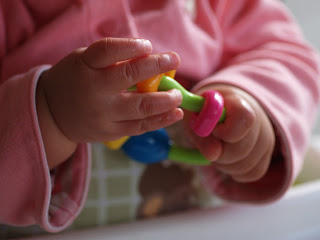
Recommended reading: Addiction, a disorder of choice, by Gene M. Heyman …
When we subject children to anti-drug propaganda* we may be taking for granted a few propositions that have not been established outside the ‘my pappy tol’ me so’ and ‘some dude in a pub said’ frames.
As Heyman’s thesis valiantly proves, addiction is absolutely a voluntary choice and is absolutely not a disease.
I’ll summarize the argument for the second claim first, because it’s so universally accepted today. If alcoholism, smoking, heavy drug use and oxycodone abuse were diseases, it would not be possible to ‘quit.’ Not with a change of attitude, not with rehab and not with meetings –all of which can and do end addiction in real life. More than 80% of heavy, chronic drug users quit on their own, by choice, most of them before they’re 30 (they also typically start at 18.) If the disease model made sense, then MS and diabetes could be ‘quit’ with the help of rehab or meetings, which is a ridiculous suggestion.
On to the voluntary choice aspect. Because a lot of the research on the subject tends to be done by economists, rather than mothers of 14-year-old boys, they often take it as read that people do not voluntarily choose self-destructive options. Anyone who has ever seen Jackass or its many imitators can snort at that idea. Clearly, people do, rather more often than most parents are comfortable, make choices that are not in the best interest of anyone, including themselves.
What’s going on?
It turns out that one other things economists get wrong is the frame in which the decisions are being made. Economists look at ‘market baskets’ –like a collection of possible spending choices for someone’s discretionary income, and see that overall people tend to make reasonably sensible choices: the ‘best interest’ model. Yet people have rationally pointed out that there are a great many people who are bankrupt –or being evicted for non-payment of rent, with big screen tvs and smartphones—that rather argues against the theory. The frame economists use, in Heyman’s terminology, is a global framework for decision making, and it does tend away from self-destructive and toward best interest. In drug use, this means that when someone frames the ‘will I use cocaine now?’ question in terms of ‘is this the best use of the next $150 and 4 hours of my time, considering my life goals?’ the answer is very, very different from a ‘local’ viewpoint.
The local view is ‘will I suffer through the craving now?’ In short-term decision-making, people will very often make self-destructive and even openly suicidal choices. In my post about lacking resources (Anti-Resourceful), I described one such devastating decision from my hometown. It is not irrational, from a ‘this moment’s pleasure’ standpoint, to use drugs instead of living through withdrawal.
So, to drug education
What do we tell the children, and what ‘works’ for avoiding hard core drug addiction?
As much as we don’t really believe it will work (hence the propaganda*) the answer is: The Truth.
The truth includes the fact that drugs use money, energy, resources and time in a way that does not get anyone closer to their personal goals in life. It’s uncommon knowledge, but you only get to spend this dollar, this bit of energy and this minute once.
The truth includes the fact that most people who experiment with drugs have their own very good reasons for not becoming habitual users, and it’s probably worth forty minutes of your life to figure out what yours are.
The truth includes the fact that there are many potentially-devastating side effects from most potent drugs, and in spite of the fact that the odds of ending up with any or all of them are really pretty small, without the drug use the odds are much nearer to zero.
The truth includes the fact that drug use has some real attractions that are genuinely hard to beat with anything else in the world, but none of those eradicate any of the other truths, including the fact that quitting is filled with suffering, often for a good long time.
The truth includes the fact that the majority of successful people look down on both the effects and the users of mood-altering substances particularly when the use can no longer be easily contained to non-productive hours, or when the urge to use spills out into criminal and anti-social behaviour. All people need the respect and goodwill of their friends and neighbours and while you’ll certainly be popular with your dealer/supplier and your buddy users, you will also certainly be restricting your social circle dramatically.
Do we have to get into dire threats and fictional statistics? I don’t think so. In fact, it would be ever so much better if we didn’t.
___
* Propaganda defined: amplified, simplified and vilified info-tainment designed to coerce underlings into believing whatever overlings have determined to be ‘best’ for them, regardless of any accuracy of statements…






